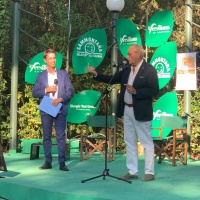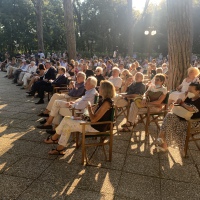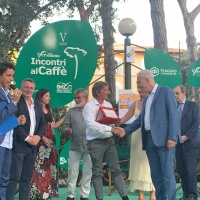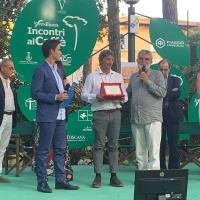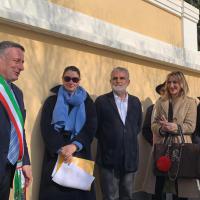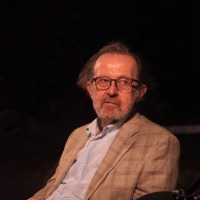The winners
LericiPea Liguri nel Mondo Prize 2020 Liguri nel Mondo to Stefano Giovannoni
The LericiPea “Liguri nel Mondo” Prize is awarded to the architect and industrial designer from La Spezia Stefano Giovannoni, for being an “ambassador” of Ligurian excellence. Some of his iconic creations can be found in the permanent archive of the Georges Pompidou Center in Paris, at MOMA in New York and have enchanted China. For the Chinese market, in fact, he created the “Oriental Tales”, a project designed by Giovannoni himself and Rumiko Takeda in collaboration with Alessi and the National Palace Museum of Taiwan. In his prestigious career, Giovannoni – more than any other designer – has been able to combine the expressive, figurative and “affective” aspect with the commercial one, anticipating the consumers’ requests and desires and, at the same time, putting quality first and combining technology and cognitive science to beauty. He is the inventor of a new kind of design based on irony, and none of his works is an end in itself, yet a perfect balance between structure and functionality.
The Jury of LericiPea Golfo dei Poeti Poetry Prize
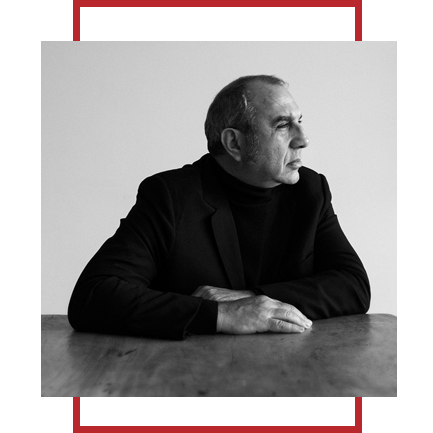
In Genoa, at the Cristoforo Colombo Hall of Regione Liguria, the architect, industrial and interior designer from La Spezia Stefano Giovannoni was awarded with the LericiPea “Liguri nel Mondo” Prize 2020 for “exporting the Ligurian genius” not only to Europe, where his works are part of the permanent collection of the Centre Georges Pompidou in Paris, but also to the United States, where they are in the MOMA in New York, and most recently to China with the special collection “Orientali” (Orientals) he designed in collaboration with Alessi.
LericiPea Special Prize to Renzo Piano
On August 8th, 2020, Renzo Piano was at La Versiliana, in Forte dei Marmi (Tuscany), and on this special occasion he was awarded the Lerici Pea Special Prize. The prize is awarded by the LericiPea Association on very rare occasions, and only to personalities of absolute and unique importance. Renzo Piano is certainly the most famous architect in the world; he has designed the new Morandi bridge in Genoa, which collapsed in 2018 and was inaugurated in 2020. The Association, with the aim of celebrating the excellence of world Poetry, decided to award him a Special Prize after reading Piano’s own words: “The new bridge will sing, will remember history, will process the city’s grief. It is like the poetry of the sea: it records sounds, voices, perfumes, light and returns them to those who have eyes to see and ears to hear”. And again, when he quoted Giorgio Caproni and said that it will be a “steel bridge, forged by the wind”.
But above all because we are firmly convinced that the first idea of Piano, from which the whole project began, consisted of pure Poetry. He himself confirms that: “The architect wakes up as a poet at 9, he becomes a craftsman at 10 and around 11 he better become a builder”.
Lucilla Del Santo – Event Manager of LericiPea

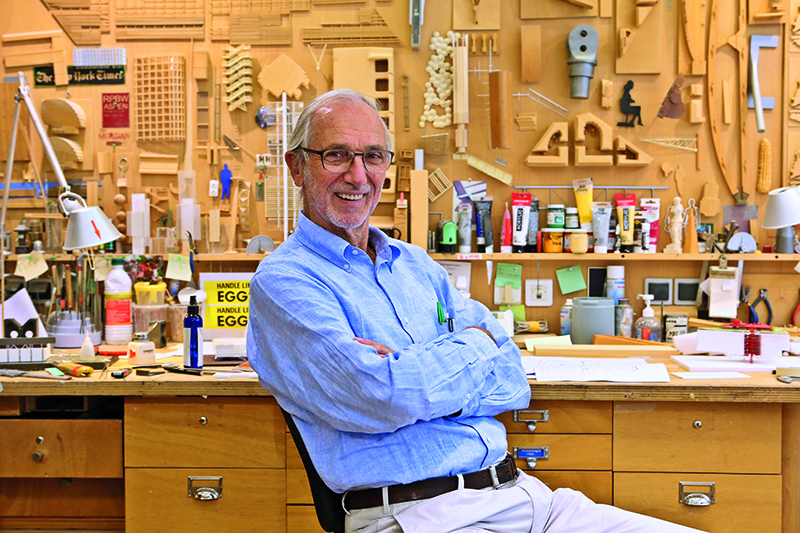
LericiPea Lifetime Achievement Prize 2020 to Ol’ ga Sedakova
The Moscovite poet Ol’ga Sedakova has been writing since the 1960s, but her poetry production has found its fortune thanks to clandestine typewritten copies of her works. Her debut took place in Paris in 1986, whereas in Russia she published her first collection only in 1990 and in 2008 in Italy. Pushkin, the Russian avant-garde poets, Mandel’štam, Achmatova, Pasternak, Brodsky and Erofeev – these are her source of inspiration; Dante – she wanted to read his works in Italian so deeply that she learned the language –, Petrarch and Ungaretti are the Italian ones. In her poetry we can feel a sort of conversion, her personal pursuit of salvation that connects and mixes classical culture (Homer, Dante, Saint Francis from Assisi, Rainer Maria Rilke) to ancient Russian fairy tales and popular songs, as well as biblical references, all in an ethical and religious strain which constantly manages the different poetic registers. Her wide culture “feeds” the verses by smoothing and tempering them, the metaphors and the colloquial tone make the poems sound like timeless parables or prayers. “Poet is the one who dies/ in that place, where to live means: to go to death”: for Sedakova poetry is an instrument, an essential need, and the poetic word is totally free from any external imposition. For her work, as well as for her poetic resilience, today the LericiPea Lifetime Achievement Prize goes to Ol’ga Sedakova, a woman and a poet, to express our convinced admiration for one of the most intense personalities of contemporary poetry.
The Jury of LericiPea Golfo dei Poeti Poetry Prize
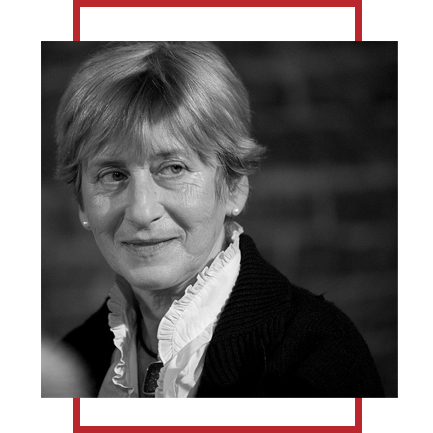
Olga Sedakova’s speech
First of all, I would like to thank the eminent Jury of the Prize for this award that, I must confess, I did not expect. It is a great honor for me, and a great joy. And it represents a wish coming from Italy, a country I have loved since childhood in a very particular way, and every time is a celebration for me. Italy is the country where the artistic genius – both plastic, musical and poetic genius – has felt like home for centuries. For Russian culture (and particularly for Russian poetry), Italy has been a familiar presence for more than a century: it is a never-ending dream, a dream of beauty and happiness. This is how our great poets – Pushkin and Baratynskij, Achmatova, Pasternak and Brodksij – describe it.
I have been awarded during a year which is nothing but happy. Italy, like Russia and the whole planet, is going through a difficult time, from which there is no way out at the moment: a pandemic caused by a new and still unknown disease. This scourge also tests our humanity. Even before COVID, of course, we hadn’t completely forgotten that we are mortal and that the future is beyond our control. But the pandemic exposed the limits of our earthly existence – our conditio humana – with merciless evidence. Many people (myself included) had to say goodbye to their loved ones, victims of the virus. Sudden goodbyes, sudden losses. Here I would like to honor their memory. And I do hope that we’ll do anything we can to reduce the number of future victims.
You don’t need to be a prophet to realize that another common disaster is approaching, or rather it has just crossed the threshold. I am speaking about our planet (other parts of the universe have not been touched by human activity yet). Our civilization is not an enemy of nature on purpose: it has been unwittingly merciless and unpredictable towards it. It all was caused by the hypothesis of unlimited resources, which people simply had to know how to “exploit”. Endlessly.
We subdue space and time, We are the bold masters of the earth!
as the cheerful 20th Century Soviet said.
I do not want to dwell upon the ecological programs, nor to denounce our civilization in favor of a “return to nature”. I myself am a product of this civilization, and also a user of it. I’m only talking about it because poetry has always had a different attitude towards the world. And it is precisely this other attitude that inspires it.
Poetry can disappear before the world – I cannot say it more clearly. It opens up, forgets itself – and give space to the world, for which our daily routine usually leaves no room. But which world? The philosopher and my beloved friend Vladimir Bibichin said it right: the world as it is, “invisible, new, reigning with detachment and in peace”.
The stars are countless, The abyss bottomless…
as the great Russian poet Mikhail Lomonosov said. These are the poems I’ve always wanted to write. I’ve never wanted to write more.
Many poets would disagree with the way I have just talked about poetry, and think that their duty lies in very different fields. But for me poetry is paying attention to the word; to the words, the words that reveal and are linked together by a ligature similar to the musical one.
I will end right where I started: with joy and gratitude because poetry is not forgotten, even in difficult times. And this gives me hope.
Thanks for your attention.

The Events
Inauguration of the plaque dedicated to the poet Paolo Bertolani
The “Walk of Poetry” was enriched by another important plaque.
The plaque, dedicated to the poet from La Serra, was placed along the Sem Benelli Promenade, on the San Terenzo side, to celebrate the 60th anniversary of the publication of his collection of poems “Le trombe di carta”, the poet’s literary debut, and the 30th anniversary of his award of the LericiPea “Edito” Prize.
The plaque, engraved with some of his most renowned verses, was revealed on Wednesday 19th February 2021 at 11 am – the same day of the poet’s passing, thirteen years ago.
“In 2020 we aim to commemorate Paolo Bertolani, who often described our territory through his verses and with his unique style. Thanks to his poems, Bertolani left us an extraordinary cultural heritage and a strong sense of belonging and respect for this place, which we have to remember and enhance every day” comments the mayor of Lerici, Leonardo Paoletti. “I would also like to thank Sanlorenzo, main Partner of the LericiPea Poetry Prize, for constantly supporting art and culture, a philosophy running through their shipyard and all their products.”
Paolo Bertolani’s wife and daughters were there to reveal the plaque along with the mayor Leonardo Paoletti, Piergino Scardigli, President of the 2020 edition of the Lerici Pea Poetry Prize, Lucilla Del Santo, Event Manager of the Prize, and Sergio Buttiglieri, from Sanlorenzo Yatchs.
The plaque is now part of the promenade named after the poet Sem Benelli, which connects San Terenzo to Lerici, and already holds 33 plaques supported by different stands designed ad hoc (by the architect Lucilla Del Santo). Each plaque shows the winners of the LericiPea “Lifetime Achievement” Prize from 1991 onwards.
Roberto Pazzi: presentation of his collection “Un giorno senza sera”
Sanlorenzo Yards, August 28th, 2020
Paolo Lagazzi: presentation of his book “Quella Ricchezza detta Povertà. I Sentieri di Paolo Bertolani”
San Giorgio Square, Lerici Castle, August, 28th 2020

